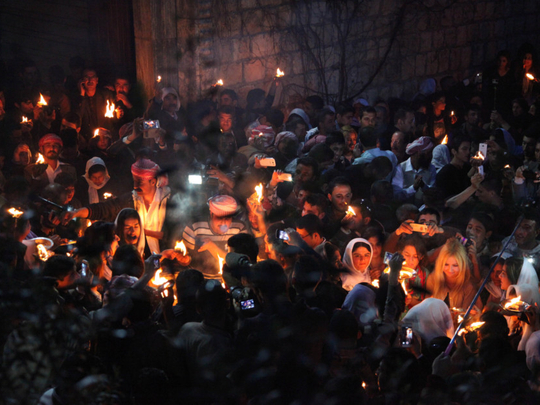
Since the founding of modern Middle East states along national or religious lines, the process of dealing with minorities has been a major national security challenge in these countries. The hypothesis assuming that minorities play a role in the instability of countries has been of serious concern in the academic community. It’s not that these minorities have sought to have weak ties to their homelands because of the existence of other more powerful external bonds. What we are implying here is that political circles have not given enough attention to dealing with minorities, making them more susceptible to external influences.
Policy makers have not worked on adopting the principles of the ‘citizenship state’, where every individual is entitled to the same rights according to the Constitution. The problem minorities across the world face is that they do not feel personally safe nor do they feel secure regarding their future. These feelings of uncertainty vary from one country to another.
In the West, where the community is run along democratic lines — with a long tradition of respect for human rights — the sense of insecurity is less, whereas in the Middle East, we find that it is not difficult for some governments to even take away the citizenship of individuals considered radical in thought and activities. Some states have also tried to bring about demographic changes. Minorities are easy targets for global or regional forces seeking to exploit them and this undermines the security of some countries.
There is some confusion surrounding the term ‘minority’. Although there is no agreed legal definition regarding this term in international law, no two people disagree that a “minority” in a given country means a group of residents that differ in religion, sect, language, culture or ideology from the majority, whose elites hold the reins of power and authority.
A group may be a minority because of its size or its lack of influence in society despite its large size. These minorities find before them two options to live in their communities — by fully integrating and melting into society and adopting the traditions and way of life and thinking of the larger community, or maintaining their presence as a distinct entity, depending on the nature of this minority and the prevailing political life in the community. They may be oriented towards the formation of civilian or political parties in democratic countries, or work towards protecting themselves by setting up secret organisations or armed militias in non-democratic countries, which did not constitutional reforms to keep up with developments in the world — especially with regard to respecting human rights.
Changing their identity
The Middle East has historically seen the emergence of many minorities — ethnic, religious, sectarian and cultural, as well as welcoming other immigrant minorities because of the attractiveness of the region economically, religiously and culturally.
Some of these minorities had nothing but vague ideas about their shared history and heritage, and that is why they were unable to resist the big religious, nationalist or linguistic currents. Thus they dissolved and changed their identity.
Other minorities with a strong sense of identity were keen on their history. They were proud of it and they refused to blend into the community of the majority as is the case with Mandaeans and Yazidis in Iraq, the Copts in Egypt, the Alawites and the Druze in Syria and Lebanon or Al Houthis in Yemen.
No country in the world is without indigenous minorities from the soil of the same country or immigrants settled in western countries for political or economic reasons. Some of these minorities have melted into new communities and no longer feel alienated, while other minorities have become the subject of apprehension and possible security threat in the perception of the official institutions, which prompted some European leaders to declare the failure of multiculturalism in their communities.
The existence of minorities means, in principle, the existence of culture and civilisation enriching factors in society, diversity — and multiplicity of languages or dialects and varied customs, traditions and ways of life, which provides a beautiful rainbow of colours without provoking the sensitivities of others.
However, in politically tense times, this diversity is one of the factors that leads to instability that may threaten the security of any given country.
Mohammad Akef Jamal is an Iraqi writer based in Dubai.










